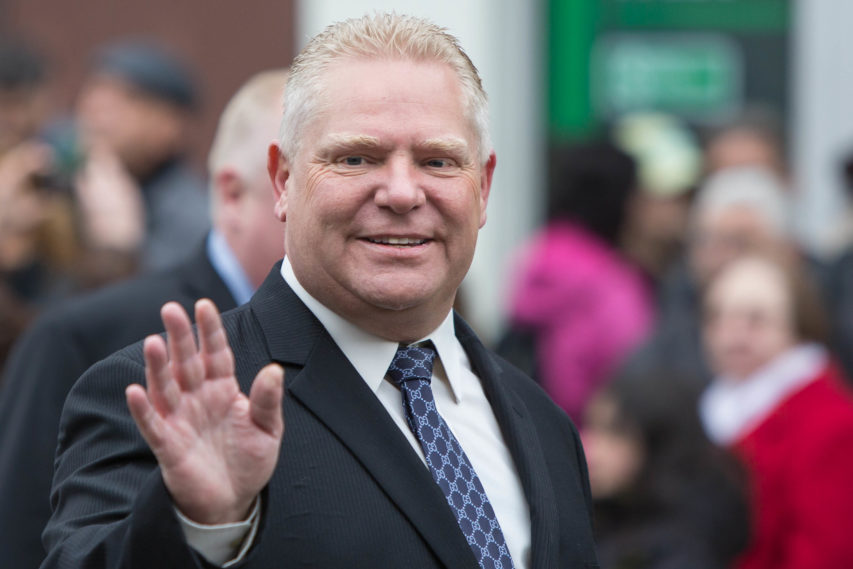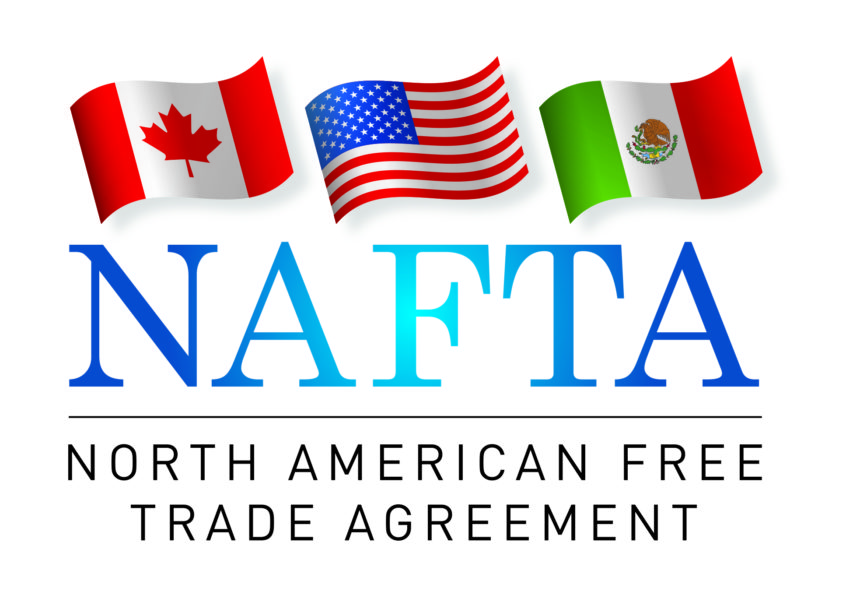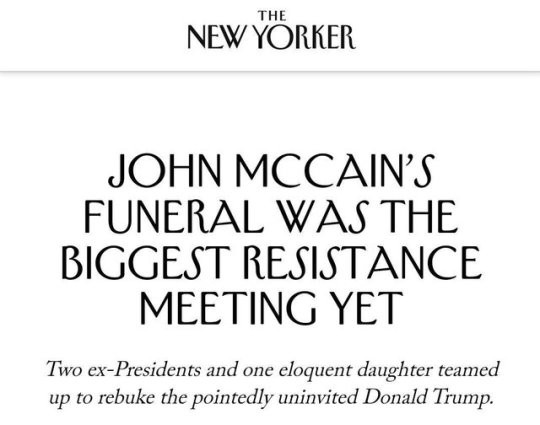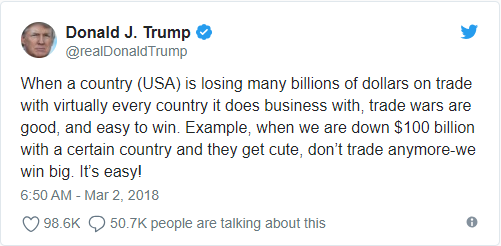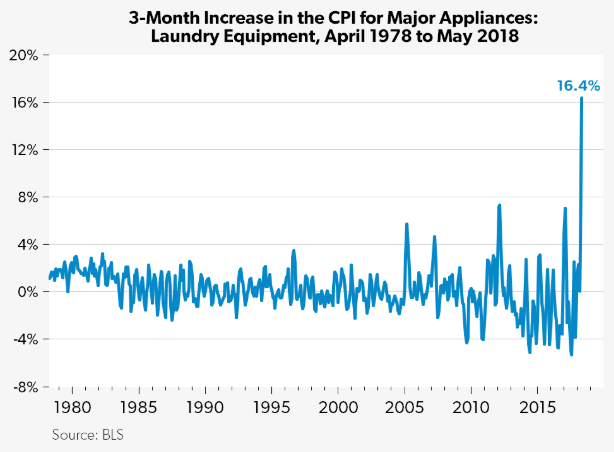Back in the day, reporters (they didn’t insist on being called “journalists” back then) were told that the way to frame their stories was to answer a series of questions which boiled down to:
- who
- what
- when
- where
- why
- how
The emphasis was on actual facts and objectivity. But now, with “advocacy journalism” having completely taken over the J-schools and pretty much every newsroom, the emphasis is on changing the world rather than reporting a story fairly and accurately. Especially now, when no less a paper than the New York Times announced before the election that Trump is so bad that objectivity should be thrown out. So the who, what, when, where, why, and how questions were changed into:
- who (can we quote to damage Trump)
- what (can we publish to damage Trump)
- when (should we run it maximize damage to Trump)
- where (do we get more material to damage Trump)
- why (Donald Trump’s presidency is an existential threat to America and to the world)
- how (can we write our stories so as to cause maximum damage to Trump)
Ladies and gentlemen, this is the state of journalism, 2018.
OregonMuse, “The Morning Rant”, Ace of Spades H.Q., 2018-09-12.
October 3, 2018
QotD: The state of American journalism
September 29, 2018
September 23, 2018
How to use the stock market as a scorecard during a trade war
At the Continental Telegraph, Tim Worstall explains how even the financial journalists at Fortune are misunderstanding what the changes in stock market values mean during Trump’s ongoing trade disputes with China:
… how stock markets react is not a good guide to the positive effects of tariffs. Quite the opposite in fact. It’s a much better guide to how we’re all getting screwed by tariffs. That is, the better the US stock market does the more evidence we’ve got of the bad effects of tariffs and a trade war.
Think on it. Why is Trump imposing tariffs? To protect American business from competition by those dastardly foreigners. Who loses in the absence of competition from the Yellow Peril? Those American consumers who would have bought those better/cheaper Chinese goods if they were able to. Who gains from tariffs? American businesses who can now gouge the American consumer a little more in the absence of those items imported from East Asia.
So, a rise in the US stock market is a guide to how much more profit American business can screw out of the American public. It’s a measure, a reasonably good and precise one too, of how much we the people are losing from the trade war and tariffs. More exactly, it’s the capitalised value of the ongoing losses we’re suffering from this restriction of our choices, the competition those who supply us face.
That is, the better the stock market performance the higher those costs and the more we’re losing the trade war. That is, as long as you accept that it is consumers, not producers, that matter, but then that’s the standard economic assumption ever since Adam Smith even if it gets lost in Washington DC often enough.
The US stock market rising in response to US tariffs is evidence of the losses from tariffs, not the gains.
September 21, 2018
Doug Ford is a bit like Trump in the way he gets his critics to froth and fizz on demand
For all the claims that Doug Ford would be “just like Trump”, they’re not all that similar, but one way the Ontario Premier does resemble the American President is the way that they both can send their opponents into rhetorical hysteria almost without effort:
As much as Ford’s government has violated political norms, we shouldn’t want the remedy to do likewise — whether it’s the feds invoking Disallowance (as a majority of Toronto city councillors voted to support) or the Lieutenant-Governor refusing Bill 31 Royal Assent (as requested Tuesday by various petitioners led by former lefty Toronto mayor John Sewell), or a judge undermining provincial authority over municipalities on grounds that collapse in higher courts.
So now, perhaps, Toronto can return to reality — or as close as you can get during an election campaign.
No, there was no magic brand of fit Mayor John Tory or hypothetical mayor Jennifer Keesmaat or anyone else could have pitched that would have stopped Ford in his tracks. Torontonians’ fits are a feature for Ford, not a bug. In defending Bill 5 he has repeatedly namechecked various left-leaning allegedly do-nothing councillors. Their apoplexy sustains him. In his book about Rob Ford, councillor John Filion quoted Doug Ford on his plans for Tory after losing the 2014 mayoral election: “He’s going to take off the sheets in bed at night and find my teeth wrapped around his nuts.”
Note that Chris Selley is careful to include the “allegedly” there … no need to invite lawsuits for the National Post.
And no, there is no real hope of relief in the ongoing appeals process over Bill 5. Even if the Supreme Court were to side with Belobaba, it would only repudiate the way in which the province wielded its powers — i.e., in the middle of an election — not the powers themselves. Had the government waited four years, or even legislated a two-year council term at 47 wards to be followed by an election at 25, it would have been on plenty-thick ice. It could easily re-legislate a 25-ward Toronto after such a ruling, and without using the notwithstanding clause.
Toronto politicians are destined to be Doug Ford’s favourite punching bag at least until they stop reacting so hysterically every time he so much as looks in their direction. He may not be a Twitter troll of the same mastery as Donald Trump, but he doesn’t appear to need social media to get his critics all panty-bunched.
Similarly, while there is no telling how much Ford might meddle in Toronto’s affairs in the coming years, at every step along the way he will make the idea of meddling in Toronto affairs more toxic for future non-Conservative governments. All provincial governments have screwed over Toronto now and again; as of this summer, screwing over Toronto is Something Doug Ford Does. And no Liberal or New Democrat wants to be like Doug Ford.
When things die down a bit, the opposition parties will have to take a break from denouncing Ford and explain what they’ll do in future to strengthen Toronto’s democracy: restore control over its political boundaries, provide more taxation powers, allow road tolling, whatever. It would be Pollyannaish to suggest Ford has caused a political awakening in Toronto, but he has certainly made it more attractive for the other parties to take Toronto more seriously, and concurrently much more risky for them to be seen reneging on such promises in future.
September 9, 2018
“This isn’t hardball so much as Calvinball: a game where one player constantly makes up new rules as he goes along”
Andrew Coyne provides a useful set of clues to help ordinary folks understand the NAFTA “negotiations”:
Talks on a renegotiated North American Free Trade Agreement, which at various times in the past days, weeks and months have been said to be on the verge of either a deal or collapse, are now reported to be “progressing slowly.” An agreement was not expected by the end of the day Friday. Some reports said it was not expected till the end of the month. Or maybe December.
In other words, business as usual. Had you read none of the several thousand reports on the negotiations since they began more than a year ago you would be scarcely less informed than the most avid trade watcher. Some points to bear in mind as the talks grind toward their next “deadline”:
No one knows anything. Any number of authoritative commentators have weighed in on the failure of the talks, if they are in fact failing, and who is to blame if they are. But the truth is that unless you were in the room with the negotiators you have no idea what is really going on — assuming even they do. This is not because there have been no leaks or official accounts of the proceedings, but because…
Everyone is lying to you. Many a rookie reporter has had the same experience covering a labour negotiation. The talks are said to be coming “down to the wire,” facing a dramatic “midnight deadline.” Sources close to one side or the other confide there will be “no more concessions,” that a “strike is now unavoidable.”
So the deadline comes and goes and nothing happens: they keep talking. Or else the side that had vowed not to give an inch more caves and cuts a deal. Which is to say that while all sides dutifully proclaim their aversion to “negotiating through the media,” everyone negotiates through the media, all the time. The NAFTA talks are no different.
The NAFTA talks are completely different. There has never been a trade negotiation like this, because there has never been a president, or leader of any major country, like Donald Trump. It isn’t just that he lies all the time, or changes his mind on those occasions when he is not lying.
September 5, 2018
The continuing paranoid style in American politics
John Gray discusses the mass psychosis that gripped the left in November 2016 and still has not slackened that grip:
Visiting New York a few weeks after Trump’s victory in the presidential election, I found myself immersed in a mass psychosis. The city’s intelligentsia was possessed by visions of conspiracy. No one showed any interest in the reasons Trump supporters may have had for voting as they did. Quite a few cited the low intelligence, poor education and retrograde values of the nearly 63 million Americans who voted for him. What was most striking was how many of those with whom I talked flatly rejected the result. The election, they were convinced, had been engineered by a hostile power. It was this malignant influence, not any default of American society, that had upended the political order.
Conspiracy theory has long been associated with the irrational extremes of politics.
The notion that political events can be explained by the workings of hidden forces has always been seen by liberals as a sign of delusional thinking. A celebrated study by the political scientist Richard Hofstadter, The Paranoid Style in American Politics (1964), linked the idea with the far Right. Yet in New York in December 2016, many of the brightest liberal minds exhibited the same derangement. Nearly two years later, they continue to reach to conspiracy theory as an explanation for their defeat.
The former lead book reviewer at the New York Times, Michiko Kakutani, devotes several pages to Hofsfadter’s work in her short polemic, The Death of Truth. Citing him approvingly, she notes that “the modern right wing” has “tended to be mobilised by a sense of grievance and dispossession”. As Hofstadter put it, they feel that “America has been largely taken away from them.” The charm of this citation is the lack of self-awareness it reveals. It would be difficult to find a better description of the anguish of liberals such as Kakutani, who feel they have been robbed of their historically appointed role as the moral and intellectual leaders of society.
For those who embrace it, a paranoid style of liberalism has some advantages. Relieved from any responsibility for the debacles they have presided over, the liberal elites that have been in power in many western countries for much of the past 30 years can enjoy the sensation of being victims of forces beyond their control. Conspiracy theory implies there is nothing fundamentally wrong with liberal societies, and places the causes of their disorder outside them. No one can reasonably doubt that the Russian state has been intervening in western politics. Yet only minds unhinged from reality can imagine that the decline of liberalism is being masterminded by Vladimir Putin. The principal causes of disorder in liberal societies are in those societies themselves.
September 4, 2018
“So now we know what ‘the resistance’ really is. It’s the establishment”
Brendan O’Neill on the funeral of “maverick” Republican senator John McCain:
So now we know what ‘the resistance’ really is. It’s the establishment. It’s the old political order. It’s that late 20th-century political set, those out-of-touch managerial elites, who still cannot believe the electorate rejected them. That is the take-home message of the bizarre political spectacle that was the burial of John McCain, where this neocon in life has been transformed into a resistance leader in death: that while the anti-Trump movement might doll itself up as rebellious, and even borrow its name from those who resisted fascism in Europe in the mid 20th-century, in truth it is primarily about restoring the apparently cool, expert-driven rule of the old elites over what is viewed as the chaos of the populist Trump / Brexit era.
The response to McCain’s death has bordered on the surreal. The strangest aspect has been the self-conscious rebranding of McCain as a searing rebel. In death, this key establishment figure in the Republican Party, this military officer, senator, presidential candidate and enthusiastic backer of the exercise of US military power overseas, has been reimagined as a plucky battler for all that is good against a wicked, overbearing political machine. ‘John McCain’s funeral was the biggest resistance meeting yet’, said a headline in the New Yorker, alongside a photo of George W Bush, Bill Clinton, Hillary Clinton, Al Gore, and soldiers from the US Army, the most powerful military machine on Earth. This is ‘the resistance’ now: the former holders of extraordinary power, the invaders of foreign nations, the Washington establishment.
The New Yorker piece, like so much of the McCain commentary, praises to the heavens the anti-Trump theme of McCain’s funeral. McCain famously said Trump couldn’t attend his funeral. And that in itself was enough to win him the posthumous love of a liberal commentariat that now views everything through the binary moral framework of pro-Trump (evil, ill-informed, occasionally fascistic) and anti-Trump (decent, moral, on a par with the warriors against Nazism). Even better, though, was the fact that orators at the funeral, including McCain’s daughter Meghan and both Bush and Obama, used the church service to slam Trumpism, without explicitly mentioning it, and in the process to big-up what came before Trumpism, which of course was their rule, their politics, their establishment. The Washington political and media set might seem bitterly bipartisan, said the New Yorker writer, but it is also ‘more united’ in one important sense – ‘in its hatred of Donald Trump’.
[…]
The religious allusions, the talk of vengeance against Trump, the misremembering of McCain’s life so that it becomes a moral exemplar against the alleged crimes of Trumpism, exposes the infantile moralism of the so-called resistance. Albert Burneko, assessing some of the madder McCain commentary, says there is now a ‘condition’ that he calls ‘Resistance Brain’, where people display an ‘urge to grab and cling on to anything that seems, even a little bit, like it might be the thing that Finally Defeats Donald Trump’. Even if the thing they’re grabbing on to is actually a bad thing. Like a seemingly endless FBI investigation into the elected presidency. Or George W Bush, whose moral rehabilitation on the back of Anti-Trumpism has been extraordinary. Or neoconservatism: this was the scourge of liberal activists a decade ago, yet now its architects are praised because they subscribe to the religion of Anti-Trumpism. Being against Trump washes away all sins.
August 12, 2018
Misunderstanding what the trade deficit represents
In a post from last week, Tim Worstall explains why Donald Trump is wrong about the economic impact of a trade deficit:
I should note here that I didn’t, because as a foreigner I can’t, support The Donald at the last election. But I didn’t support Hillary even more. So this is more about really, actually, insisting that Trump is wrong on trade issues rather than just the more general he’s wrong about everything common in the US press.
[…]
What Trump, DiMicco and Navarro are getting wrong is this, the GDP equation.
Y = C+I+G+(X-M)GDP is consumption plus investment plus government spending plus the trade balance – and minus it if there’s a trade deficit. So people look at this and think yep, if there’s a trade deficit than that makes Y, GDP, smaller!
But this is a mistake, an error. For, as the textbook immediately goes on to explain, what is it that we do with imports? Well, we either consume them, use them in investments or government buys them. So all imports are already in C and I and G. Meaning that if we don’t deduct them we’ll be double counting them. So, to avoid double counting we subtract them.
Trump and his advisers are simply wrong on this. The trade deficit doesn’t reduce the size of the economy. They’re getting it wrong simply because they’re not reading the second page of the explanation of the GDP equation.
July 27, 2018
“Tariffs are the classic example of government interventions with concentrated benefits and dispersed costs”
Robert Higgs on what he describes its supporters as “waging the trade war to end all trade wars”:
… even as Trump spouts venerable fallacies to justify and seek support for his destructive trade policies and related ad hoc actions, he and his supporters have sometimes offered a strange defense of their tactics: they purport to be seeking, at the end of the game, universal free trade, a world in which all countries have abandoned tariffs, quotas, subsidies, and other government intrusions in international exchange. In Wilsonian terms, they claim to be waging the trade war to end all trade wars. The idea is that by raising U.S. tariffs, they will induce other governments to lower and ultimately eliminate their own.
Of course, this rationale may be nothing more than wily claptrap, tossed out as a rhetorical bone to Republicans who favor freer trade. The administration’s actions to date certainly give no indication that it is aiming at global free trade. On the contrary. So the Wilsonian gambit may consist of nothing but hot air.
But if Trump and his trade advisers actually take this tactic seriously, they are deluding themselves.
First, and surely obviously, U.S. tariff increases will not induce other governments to lower their own, but to raise them, as the EU, China, Mexico, Canada, and other trading partners have already demonstrated. That’s why it’s called a trade war — because the “enemy” shoots back. History has shown repeatedly, most notably in the early 1930s, in the wake of the Smoot-Hawley Tariff Act of 1930, that such trade wars only spiral downward, choking off more and more trade, despoiling the international division of labor in accordance with comparative advantage, and thereby diminishing real income in all the trading countries.
Second, the prospect of the U.S. government’s ever abandoning tariffs is slim to none. Tariffs are the classic example of government interventions with concentrated benefits and dispersed costs. This character makes them attract great support from protected special interests and little opposition from the general public — including other producers — when they are enacted or extended. They are easy for politicians to put in place and diabolically difficult for anyone to eliminate. Although the costs are great — much greater than the benefits for the economy as a whole — hardly anyone’s costs are great enough to justify mounting a potent political attack on the tariffs.
People who get tariffs put in place to protect them in the first place are well positioned to marshal strong opposition to any political attempt to eliminate these taxes on consumers who buy from competing, foreign suppliers. Consumers rarely know anything about why foreign goods are priced as they are, and producers, in general, are usually not affected enough by tariffs on imported raw materials and components to justify well-funded politicking against them.
July 26, 2018
The Trump tariffs are working exactly as designed
That is, they’re becoming a drag on the economy and will take away a lot of the economic activity that was stimulated by the tax cuts enacted earlier. Warren Meyer says that it’s time that congress reclaimed the tariff powers it has outsourced to the executive branch over the years:
I Know Congress Hates To Challenge A President of Its Own Party, But…
…Congress simply has to pare back the tariff authority it has delegated the President. It is simply insane that Trump can just unilaterally impose 20% tariffs on foreign automobiles, a $200 billion new tax on US consumers.
It is appalling to see Trump following the usual blue model of economic regulation, imposing one intervention after another, each meant to fix the unintended consequences of the last intervention. Steel tariffs increased costs to domestic auto makers, so Trump proposes tariffs on foreign autos. When tariffs result (inevitably) in counter-tariffs on US agricultural exports, Trump proposes more agricultural subsidies. People (not me) lament gridlock in government and want more fluid lawmaking — well here it is. And it sucks. It is mindless and reactive and emotional and totally ignorant of economics.
These tariffs, when combined with earlier actions, will result in tax increases on consumers that swamp the tax cuts Trump and the Republicans were so proud of last year.
Jon Gabriel on the most recent “fix” for one of those unintended consequences:
A few months back, President Trump declared that “trade wars are good, and easy to win.” Now, just as nearly every economist on the left and right predicted, Americans are being hurt.
The White House slapped tariffs on imported steel and aluminum. China retaliated with planned tariffs on soybeans, meats and various agricultural products. Mexico, Canada and the European Union also struck back at farm goods and other U.S. exports.
A smart leader would notice his mistake and end the destructive policy. Instead, Trump declared that “tariffs are the greatest” and created a multibillion-dollar federal program to mitigate a small part of the mess he created.
Since Agriculture Secretary Sonny Perdue estimated $11 billion in damage to the industry, he announced a $12 billion payoff to make up the difference.
The administration used emergency executive powers created during the Great Depression; that way Congress wouldn’t get to weigh in.
“This is obviously a short-term solution that will give President Trump time to work on a long-term trade policy and deal to benefit agriculture as well as all sectors of the American economy,” Perdue told reporters.
It’s certainly short-term, but hardly a solution. Trade deals and networks are disrupted, farmers can’t plan for the future, and non-agricultural industries are still losing money. Not to mention all the American consumers watching prices rise on all sorts of household goods.
But red states have a lot of farmers and the midterms are just three months away. Maybe borrowing a few billion dollars will hide enough economic pain to convince voters to keep Republicans in power for two more years.
July 22, 2018
Trump and Putin … with all this smoke, there has to be a smoking gun, right?
Colby Cosh pours cold water on the still-smouldering hopes of the “smoking gun” enthusiasts:
If the president can be found guilty of “Treason, Bribery, or other High Crimes and Misdemeanors” that is another thing, but that would require courtroom-worthy evidence of action, as opposed to indications of presidential doctrine or feeling or even strong hints of compromised personal interest. Trump did behave in Helsinki like someone who is beholden to Russia, or who is anxious for a rapprochement with Putin’s state. Yet he was, and this could not have come as a surprise, quick to try reversing himself later — emphasizing how tough he has been with Russia and how tough he is prepared to continue to be. Grrr!
Since I’m not on a diet of television news, I tend to interpret this as Trumpian “leadership” technique. They are the actions of someone who is convinced that anything can be accomplished by means of erratic emotional style and business-literature verbal tactics. These include cheap personal praise for negotiating opponents, which has become a perfectly foreseeable theme of Trump as a diplomat. (The tactical corollary is that very popular or highly esteemed people are especially vulnerable to outbursts of surprise criticism, and that has been a feature of Trump, too.)
It does not really cost the United States anything for Trump to praise Putin as skilled and strong (as a tyrant, he has been effective at maintaining domestic moral legitimacy, even if judged by the cost in shed blood) or to portray Kim Jong Un as a young man coping with terrible responsibilities. (Trump’s distaste for NATO is more dangerous as rhetoric, but did the other member nations forget for a while that political legitimacy within the United States is a prerequisite for the organization’s existence? If in the long run we devote a little more attention to the necessary housekeeping, Trump may have done the world a service.)
[…] The midterm congressional elections will be held with a long-forgotten fact re-emerging in the American popular consciousness: that much of the president’s power to set foreign policy and foul up trade is actually the property of Congress, and could be reclaimed after a century of careless delegation.
Perhaps some Americans are beginning to consider that it does not matter most whether you are with the good guys in the Trump/anti-Trump drama. Which is not to say you do not want to be one of the good guys. But the opportunity for American millennials, considered as a generation on the cusp of electoral dominance, is not just to kick Trump out, but to renovate the presidency so that the republic can survive having an unsuitable or even compromised person as president. Everybody got that? Are we good? Eyes on the ball, people.
July 14, 2018
Trump’s tariffs are working
Tim Worstall explains that the recent US price hikes in washing machines is exactly what the Trump administration wanted:
The part of import tariffs that all too many fail to understand is that it is consumers being “protected” by them who actually pay them. That is, import tariffs on foreign goods entering the United States are paid by those inside the United States. Or, as we can also put it, Trump’s tariffs are making Americans poorer. This isn’t a known to be desired effect of economic policy.
However, it’s important to note that the real burden doesn’t come from the rise in price of the imports. It’s what the domestic producers do to us all in the absence of that foreign competition which is important:
If you’re unfortunate enough to be shopping for a new washing machine, you can thank the Trump tariffs on imported washing machines, washing machine parts, steel and aluminum for the largest three-month price increase — 16.4% from February to May this year — in the 40-year history of the BLS series for Major Appliances: Laundry Equipment that started in January 1978 (see chart above). In the May CPI report (see Table 2), the one-month increase in the CPI for Laundry Equipment of 7.4% in May followed a 9.6% increase in April, and in both months was the largest monthly price increase of any of the 300 individual CPI categories or sub-categories. For the month of May, the 7.4% increase in the washing machine series was twice the increase of the next highest increase of 3.7% for educational books and supplies (mostly college textbooks).
What’s worse than this price rise is that this is planned. This is the desired outcome from the people who imposed these taxes.
July 9, 2018
Nominating Amy Barrett “would be a tactical masterpiece on the level of Napoleon’s conduct of the Battle of Austerlitz, or Hannibal at Cannae”
I have no idea who President Trump will announce later today as his nominee for the vacancy on the US Supreme Court, but Conrad Black is plumping for one particular candidate:
The desperation of the Democrats to stop the apparently inexorable rise of a president they so completely discounted and despised, and assumed they could remove or emasculate just by turning up the volume and activity of their media organ monkeys, may drive them to accidental suicide over the latest Supreme Court vacancy. I have no standing at all to intuit whom the president may nominate. But if, as I suspect, it is Judge Amy Barrett, it would be a tactical masterpiece on the level of Napoleon’s conduct of the Battle of Austerlitz, or Hannibal at Cannae.
The U.S. Senate confirmed Barrett to the Seventh U.S. Circuit Court of Appeals on October 31, by a 55-43 vote. Three Democrats voted for her and two did not vote. It would not be easy to justify changing their votes now, as she has served unexceptionably. At her confirmation hearings, Senator Dianne Feinstein, the Judiciary Committee’s aged ranking Democrat, asked Barrett about her religious views, and the nominee responded that no judge should allow personal views, whether based on faith or anything else, to influence the imposition of the law. “The dogma lives loudly within you, and that is a concern,” Feinstein said infamously. This was an outrageous comment; Feinstein doesn’t know anything about the dogma of the Roman Catholic Church, and she has no idea what privately motivates Judge Barrett.
The fury and haste of the Democrats once the starting gun went off with the announcement of the retirement of Justice Anthony Kennedy from the Supreme Court, expressed their blind panic that their entire protracted regime of encroachments and embellishments on the Constitution — buttressing their centralized and authoritarian notion of administrative juridical governance with pretense to defending the rights of women, affirmative action, and the legislative role of the judiciary generally — was now under mortal assault.
[…]
I believe the president will nominate Barrett, that the Democrats will take definitive leave of their depleted senses, apostrophize the judge as a Trojan Horse of female submission, that she will clear her hearings with flying colors while the president’s formidable battery of social media and talk show supporters roast the Democrats for attacking an exemplary female achiever and a fine jurist whose only offense is to be a member of the Roman Catholic Church, by far the largest in the country with more than 70 million adherents. Remember, too, the Supreme Court in the final days of its term ruled that crisis pregnancy centers need not advertise the virtues of abortion with Planned Parenthood, and in 2016 said the Little Sisters of the Poor could not be compelled to pay for birth control and sterilization.
As at Cannae and at Austerlitz, the center of the defending force (Democrats), will crumble and President Trump will sweep the field. The Democratic playbook of endless ear-splitting allegations of serial outrages by the president, will not, finally, bring him down. On this issue, of mobilizing unfounded sexist paranoia against a flawless nominee, thereby insulting tens of millions of American women and U.S. Roman Catholics, before raising the objections of fair-minded non-Catholic men, at least another 20 percent of the population, the Democrats will immolate themselves in an unprecedentedly spectacular launch of their midterm election campaign.
Of course, no matter who is put forward, that person will immediately become the target of a supersized version of the “two-minute hate” that will literally last for months, or until the nominee is driven to decline the nomination, at which point the hate will be directed at the next nominee. Pedantically, however, Black’s use of Cannae and Austerlitz is only metaphorical: at Austerlitz, the allied centre did crumble, but at Cannae, it was the Roman cavalry on the flanks that crumbled, allowing the Carthaginians to envelop the rear of the main Roman army. Two very different battles.
July 5, 2018
The soon-to-be-announced target of the two-minute unceasing hate
At Reason, Jacob Sullum says Trump did well with his first Supreme Court pick, and the unwillingness of Trump’s opponents to acknowledge that shows how much blind partisanship has gripped the left:

Anthony M. Kennedy, Associate Justice of the Supreme Court of the United States, swears in Supreme Court Justice Neil M. Gorsuch on Monday, April 10, 2017, in the Rose Garden of the White House in Washington, D.C. Also shown, Gorsuch’s wife Louise stands on stage holding a family Bible. Justice Gorsuch is the Supreme Court’s 113th justice.
White House photo via Wikimedia Commons.
“We have to STOP the next Trump nominee!” says a pop-up solicitation on People for the American Way’s website. Before you rush to “donate now,” you might want to consider the organization’s assessment of Trump’s last Supreme Court nominee.
“Far from being a fair-minded constitutionalist,” PFAW says, Neil Gorsuch “has proven to be a narrow-minded elitist who consistently votes in favor of corporations and the powerful.” The gap between that description and Gorsuch’s actual performance on the Court speaks volumes about the blind partisanship of Trump critics who care more about scoring political points than defending civil liberties.
PFAW is echoing the criticism of Democratic senators who worried, before Gorsuch was confirmed in April 2017, that he was not inclined to stand up for “the little guy.” Gorsuch’s record during a decade on the U.S. Court of Appeals for the 10th Circuit belied that claim, and his 15 months on the Supreme Court provide further evidence that he is not shy about defending the principles that protect politically disfavored individuals from the whims of the powerful.
In sharp contrast with the man who nominated him, Gorsuch worries about abuses of the government’s power to take people’s property “for public use.” In June 2017, when the Court declined to hear a case that raised the question of whether a state can impose limits on the “just compensation” it owes for takings under the Fifth Amendment, Gorsuch, joined by Clarence Thomas, urged his colleagues to address that issue at the “next opportunity.”
That pairing was notable because Gorsuch is on record as admiring Thomas’s passionate dissent from the widely condemned 2005 decision in which the Court approved the use of eminent domain to transfer property from one private owner to another in the name of economic development. Big businesses routinely use such arrangements to override the wishes of little people who get in the way of their plans.

